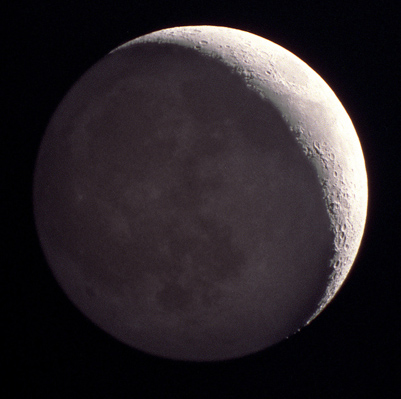Difference between revisions of "February 6, 2004"
| Line 1: | Line 1: | ||
__NOTOC__ | __NOTOC__ | ||
=New and Old All Together= | =New and Old All Together= | ||
| − | |||
| − | |||
<table width="640" border="0" align="center" cellpadding="6" cellspacing="2"> | <table width="640" border="0" align="center" cellpadding="6" cellspacing="2"> | ||
| − | + | <tr> | |
| − | + | </tr> | |
| − | |||
| − | |||
| − | |||
</table> | </table> | ||
<table width="640" border="0" align="center" cellpadding="6" cellspacing="2"> | <table width="640" border="0" align="center" cellpadding="6" cellspacing="2"> | ||
| − | + | <tr> | |
| − | + | <td colspan="2"><div align="center"> | |
| − | + | [[File:LPOD-2004-02-06.jpeg|LPOD-2004-02-06.jpeg]]</div> | |
| − | + | </td> | |
| − | + | </tr> | |
| − | |||
</table> | </table> | ||
<table width="100%" border="0" cellpadding="8"> | <table width="100%" border="0" cellpadding="8"> | ||
| − | + | <tr> | |
| − | + | <td><div align="center" span class="main_sm">Image Credit: [mailto:alan@greatarrow.com Alan Friedman]</div></td> | |
| − | + | </tr> | |
</table> | </table> | ||
| − | |||
<table class="story" border="0" bgcolor="#FFFFFF" width="90%" cellpadding="10" align="center"><tr><td> | <table class="story" border="0" bgcolor="#FFFFFF" width="90%" cellpadding="10" align="center"><tr><td> | ||
| − | + | <p class="story" align="center"><b>New and Old All Together </b></p> | |
| − | + | <p class="story" align="left">The crescent Moon is one of the glories of the solar system. The bright, sun-lit portion of the Moon doesn't | |
| − | + | yet overwhelm the Earth-lit, gibbous part. In Alan Friedman's remarkable composite rendition of this classic | |
| − | + | scene there is a strong three-dimensionality - you can almost feel the curvature of the surface. The face of the | |
| − | + | Woman in the Moon is easily seen, as is bright Aristarchus, which Herschel mistook for an erupting volcano. Along | |
| − | + | the sunlit side of the terminator the twins Atlas and Hercules are visible in the north (near the top), and south | |
| − | + | of bifurcated Nectaris is Janssen and friends. Wow! </p> | |
| − | + | <p><b>Technical Details:</b><br> | |
| − | + | This image was made from two film exposures at different focal lengths (an A/P Traveler at 600mm and | |
| − | + | a Leitz 450mm camera lens) and combined in Photoshop, allowing both the sunlit and earthlit areas of | |
| − | + | the moon to be optimally exposed.</p> | |
| − | + | <p class="story"><b>Related Links:</b><br> | |
| − | |||
| − | |||
| − | |||
| − | |||
| − | |||
[http://www.randomhouse.com/delrey/sample/earthlight.html <i>Earthlight</i>] by Arthur C. Clark (excerpt)<br> | [http://www.randomhouse.com/delrey/sample/earthlight.html <i>Earthlight</i>] by Arthur C. Clark (excerpt)<br> | ||
[http://science.nasa.gov/headlines/y2002/12apr_earthshine.htm Earthshine] from Science@NASA</p> | [http://science.nasa.gov/headlines/y2002/12apr_earthshine.htm Earthshine] from Science@NASA</p> | ||
| − | + | <p class="story"> <b>Tomorrow's LPOD:</b> Crumpled Sheets of Lava</p> | |
| − | + | </td></tr> | |
| − | |||
| − | |||
| − | |||
</table> | </table> | ||
| − | + | <!-- start bottom --> | |
| − | </td></tr> | + | <table width="100%" border="0" cellspacing="2" cellpadding="4"> |
| − | + | <tr> | |
| + | <td><hr></td> | ||
| + | </tr> | ||
<tr> | <tr> | ||
| − | + | <td> | |
| − | + | <p align="center" class="main_titles"><b>Author & Editor:</b><br> | |
| − | + | [mailto:tychocrater@yahoo.com Charles A. Wood]</p> | |
| − | + | <p align="center" class="main_titles"><b>Technical Consultant:</b><br> | |
| − | + | [mailto:anthony@perseus.gr Anthony Ayiomamitis]</p> | |
| − | + | <p align="center" class="main_titles"><b>A service of:</b><br> | |
| − | + | [http://www.observingthesky.org/ ObservingTheSky.Org]</p> | |
| − | + | <p align="center" class="main_titles"><b>Visit these other PODs:</b> <br> | |
| − | + | [http://antwrp.gsfc.nasa.gov/apod/astropix.html Astronomy] | [http://www.msss.com/ Mars] | [http://epod.usra.edu/ Earth]</p></td> | |
| − | + | </tr> | |
| − | |||
| − | |||
| − | |||
| − | |||
| − | |||
| − | |||
| − | |||
| − | |||
</table> | </table> | ||
| − | |||
| − | |||
| − | |||
<p> </p> | <p> </p> | ||
| − | |||
| − | |||
| − | |||
---- | ---- | ||
===COMMENTS?=== | ===COMMENTS?=== | ||
Click on this icon [[image:PostIcon.jpg]] at the upper right to post a comment. | Click on this icon [[image:PostIcon.jpg]] at the upper right to post a comment. | ||
Revision as of 18:15, 4 January 2015
New and Old All Together
Image Credit: Alan Friedman |
|
New and Old All Together The crescent Moon is one of the glories of the solar system. The bright, sun-lit portion of the Moon doesn't yet overwhelm the Earth-lit, gibbous part. In Alan Friedman's remarkable composite rendition of this classic scene there is a strong three-dimensionality - you can almost feel the curvature of the surface. The face of the Woman in the Moon is easily seen, as is bright Aristarchus, which Herschel mistook for an erupting volcano. Along the sunlit side of the terminator the twins Atlas and Hercules are visible in the north (near the top), and south of bifurcated Nectaris is Janssen and friends. Wow! Technical Details: Related Links: Tomorrow's LPOD: Crumpled Sheets of Lava |
|
Author & Editor: Technical Consultant: A service of: |
COMMENTS?
Click on this icon File:PostIcon.jpg at the upper right to post a comment.




